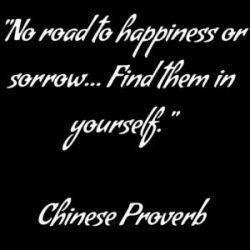When new clients come to me for goal setting, one of the goals many of them want is to have more happiness in their lives.
Of course, we all want to be happy… but what does it mean? And… is it the same for everybody?
Are we looking for happiness or pleasure? And… are they the same or different?
When researching the definitions of happiness and pleasure, I think I opened a Pandora’s box. The definitions were varied depending on whether coming from a philosophical1 or psychological2 point of view. I certainly want to keep it as simple as possible.
Dr Margaret Paul 3 said that pleasure is a momentary feeling that comes from something external. A good meal, drinking alcohol and sex are examples. It has to do with positive experiences from some external event or experience.
Happiness is different. It’s an inner sensation and does not depend on the 5 senses. There is calmness and peace, says Remez Sasson4. External events and situations might trigger factors leading to happiness. However, happiness does not depend on them. It is a sensation of inner calmness and satisfaction.
Though happiness is similar to pleasure in some respects, it is different. Happiness and inner peace come from the same source, from within. External situations have little to do with real happiness.
Through training, you can reach a state when happiness and peace are experienced more and more often, despite our external situations.
Pleasure is wonderful but it can be fleeting. As humans, we tend to chase pleasure and avoid pain.
So, what about happiness? What is the recipe to being happy?
In the years since I became a life coach, I’ve learned a few hacks which I want to pass onto you right now so that you can feel happier more often.

- Take total responsibility for yourself
This means, first and foremost, that you take responsibility for your own life. Forgive your parents for doing a ‘shitty job’ and scarring you during your childhood. Your parents did the best they could with the limited tools they had. You are an adult now and you can take care of your own inner children. No more blame game. And that’s with everyone… your spouse, children, boss etc. YOU are in control of your life, no matter the external circumstances.
If you read the books of three holocaust survivors, Viktor Frankl6, Eddie Jaku7 and Edith Egar8, their stories are similar, with all being in the most horrific circumstances of surviving Auschwitz concentration camp during World War 2. They are the most inspiring stories of surviving and thriving. The one most important take away for me is that happiness is an inside job.
Here’s a quote from Eddie’s book. “Here is what I learned. Happiness does not fall from the sky; it is in your hands. Happiness comes from inside yourself and from the people you love. And if you are happy and healthy, you are a millionaire.”
― Eddie Jaku, The Happiest Man on Earth: The Beautiful Life of an Auschwitz Survivor
Even though going through menopause can be challenging for many women, happiness is still available to us. This is a good tip to remember.

- Take a close look at your co-dependent behaviour patterns
Dr Terri Cole5 states that it’s important to take a close look at any co-dependent relationships you may have. If you feel overly responsible for the feelings, states and outcomes of others to the detriment of your physical, emotional or financial self, this is co-dependence.
Other people’s states are not your responsibility. It’s theirs! No matter how close you are to this person, you are not responsible for making them happy.
Recently, I spent 18 months on the Sunshine Coast (I live in Sydney) helping my elderly mother. Of course, I could help her out with all the logistical things, like getting her into good care, and helping sort out her financial situation, help to sell one of her properties and be there for her needs. I must admit that I bent over backwards to ensure she had everything she needed and wanted.
Unfortunately, my mother is not very happy. She wanted to blame me for putting her in ‘that place’. ‘That place’ is a 5-star aged care residential facility and the people there are so loving and caring. I visited her regularly during the last 18 months, so I got to know the staff there very well and they are wonderful.
Now, I can be responsible for all of my mother’s logistical needs, but her happiness is HER responsibility. I had to keep reminding myself of this. I figured after being there a while, that my relationship with my mother was somewhat co-dependent. Even with all the work I have done on myself and in helping others, I was trying to ‘make her happy’! YIKES!
This was a startling realisation for me, and I’ve had to do more work on myself as a consequence.
When you’re trying to make someone else happy, it’s a recipe for you being unhappy. It’s so pointless and it’s not your job to make someone else happy… even if they are your mother!

- Releasing negative emotions when they come up
Often, we can be triggered into a negative emotion when something happens. Regardless of how or what has triggered it, it is important to express that emotion in an appropriate way.
If you’re angry, punch a pillow or scream in the car (when alone). LET IT OUT!
If you are sad and feel like crying… go and find a place where you can have a good cry.
Whatever it is, it needs to be released. You know how good it feels after a good cry… right?
Children are the best at releasing emotion in real time. Think about it… it doesn’t matter where they are, if they’re triggered, they let rip into the biggest tantrum. When done, they are at peace and often fall asleep.
Thing is (and I remember this well as a child), this was discouraged, and the behaviour is punished. Releasing our emotions was perceived as inappropriate and BAD! It’s no wonder that as adults that we are emotional cripples and resist releasing emotions. The big issue is that these emotions build up so much that it can lead to a HUGE explosion. Think road rage and domestic abuse!
I encourage all of my clients to express their emotions when they come up and I give them the tools to deal with it.
It’s such a release and a relief. The last thing we need is to have trapped negative emotions as this has an effect on our health and emotional well-being. This effects our overall happiness.

- Reframe what may seem like negative situations
Life is life and stuff happens… right? Often, it can upend us. Like your luggage getting lost on an overseas trip, or an event you were looking forward to being cancelled. Or even worse, someone you love losing their life. It’s all just part of life.
Even though at times it could be a challenge, there is always a way to reframe negative situations.
Losing your luggage could also mean that you are able to buy new clothes with the insurance money.
A cancelled event could mean that you have more time for you to just relax.
Someone dying (as sad as it is) could be thought of as having had spent X wonderful years with that person in your life.
For me and my relationship with my mother, as soon as I thought I could be co-dependent, I reframed that being up in Queensland gave me time with her that I would never have had otherwise. Also, that I could spend more time with my other family members. And… that it was MY choice to be up there and to help out and that I did it for ME. This really shifted the energy around my mindset and therefore, the situation.
Practising gratitude is another way to reframe negative situations. Instead of focussing on the things that go wrong during the day, focus on the things that you are grateful for. This will lead to a shift in your energy too.

- Get connected
I have mentioned so far that true happiness is likely to be independent of your external circumstances. If you were to practise the 4 steps above, you would be well on your way to blissfulness. Having said this, I have read so much about human connection and how important it is to human well-being that I wanted to include it here.
Many studies have shown that having positive and healthy relationships with people can increase happiness. Think about it… we are social animals, and we evolved this way. Fostering connections with people who have similar values and interests can increase the quality of your life and happiness.
A Harvard study9 on adult development (considered to be the most extended study, which started in 1938, tracked the lives of 724 men for 75 years) found that good relationships are the key factors that matter the most for long-lasting happiness.
Whether it be a romantic relationship, or relationship with people in our family, our community and beyond, solid positive relationships can increase the sense of well-being and happiness.
So… get out there and find your tribes!

So, how do you do all the above steps?
Well, you don’t have to do it alone.
I’m here to help you.
If you would like to check out how I can help you, book in for a FREE Soulful Connection Session. Just book in at a time that suits you using my online calendar HERE.
I’d love to have a chat with you to see how I can help.
Love, Gina XX

References:
- Austin, Jean. “Pleasure and Happiness.” Philosophy, vol. 43, no. 163, 1968, pp. 51–62. JSTOR, http://www.jstor.org/stable/3749022. Accessed 22 Aug. 2022.
- Lustig, Robert. “The Hacking of the American Mind.” Avery Publishing Group, September 2018. Accessed 22 August 2022.
- Paul, Margaret “The difference between Happiness and Pleasure”. Huffpost, June 2015. Accessed 22 August 2022. https://www.huffpost.com/entry/the-difference-between-happiness-and-pleasure_b_7053946
- Sasson, Remez. “What is the difference between Pleasure and Happiness.” Success Consciousness, Accessed 22 August 2022. https://www.successconsciousness.com/blog/happiness-fun/pleasure-and-happiness/
- Cole, Terri. “Boundary Boss”. Sounds True, April 2021. Accessed August 2022.
- Frankl, Viktor. “Man’s Search for Meaning”. Boston: Beacon Press, 1962. Accessed 22 August 2022.
- Jaku, Eddie. “The Happiest Man on Earth”. McMillan Australia, July 2020. Accessed 22 August 2022.
- Eger, Edith. “The Choice”. Rider Trade, August 2018. Accessed 22 August 2022.
- Mineo, Liz. “Good genes are nice, but joy is better” The Harvard Gazette – Health and Medicine. April 2017. Accessed 23ust 2022.
Gina’s Bio
Gina Mitchell stands for women being empowered and owning their own lives while going through midlife and menopause.
Her niche is coaching women over 40 because of her own challenges with midlife and menopause. She is not okay with the fact that many women suffer and struggle through this stage of life and beyond.
Gina is a certified life coach, certified NLP practitioner, matrix therapist and hypnotherapist. She is the founder and CEO of Midlife Coaching for Women. She has been supporting her clients to reach their goals since 2011.
She wrote a #1 best-selling book about female midlife relationships called ‘Ignite the Spark’.
Gina’s mission to help midlife women live their true potential comes from over 35 years as a scientist and science teacher.
Her other passions include her family, pet cat, travel, advocating for animal rights and the environment.
‘Not just surviving menopause and midlife …..but thriving’ – Gina Mitchell
Website:
https://www.midlifecoachingforwomen.com.au
Social media links
https://www.facebook.com/gina.mitchell.5205
https://www.facebook.com/groups/confusiontomojo
https://www.facebook.com/ginamitchell1958/
https://www.instagram.com/ginamitchell1958/
https://www.linkedin.com/in/gina-mitchell1958/